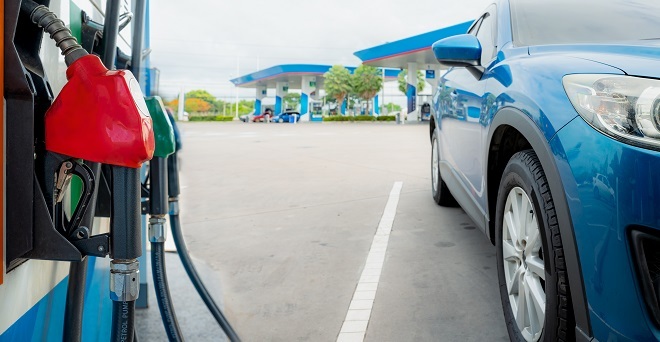
 Data Structure
Data Structure Networking
Networking RDBMS
RDBMS Operating System
Operating System Java
Java MS Excel
MS Excel iOS
iOS HTML
HTML CSS
CSS Android
Android Python
Python C Programming
C Programming C++
C++ C#
C# MongoDB
MongoDB MySQL
MySQL Javascript
Javascript PHP
PHP
- Selected Reading
- UPSC IAS Exams Notes
- Developer's Best Practices
- Questions and Answers
- Effective Resume Writing
- HR Interview Questions
- Computer Glossary
- Who is Who
What is the full form of FIPL?
Introduction
Fuel Injection Pump Lever (FIPL) is a component of the fuel system in a diesel engine. The FIPL is responsible for controlling the amount of fuel that enters the engine's combustion chamber. When the throttle is opened, the fuel injection pump lever is moved to increase the amount of fuel that is injected into the combustion chamber. This allows the engine to produce more power and run at higher speeds.

The FIPL is usually located on the fuel injection pump itself, which is typically mounted on the engine. It is important that the FIPL is properly adjusted and maintained, as improper adjustment can result in poor engine performance, increased fuel consumption, and potentially serious engine damage.
Modern diesel engines often use electronic fuel injection systems that do not require a physical lever, but instead rely on electronic sensors and control modules to regulate fuel delivery. However, older diesel engines and some specialized applications still use mechanical fuel injection systems with a physical FIPL.
Functions of FIPL
The Fuel Injection Pump Lever (FIPL) serves several important functions in a diesel engine's fuel system, including
Control of Fuel Delivery The FIPL controls the amount of fuel that enters the engine's combustion chamber. By adjusting the position of the lever, the amount of fuel injected into the engine can be increased or decreased, which affects the engine's power output and overall performance.
Regulation of Engine Speed The FIPL is also responsible for regulating the engine speed by controlling the amount of fuel delivered to the engine. When the throttle is opened, the FIPL moves to increase the fuel flow and engine speed.
Fuel Efficiency Proper adjustment and maintenance of the FIPL can also help to improve fuel efficiency by ensuring that the engine receives the correct amount of fuel for optimal combustion.
Safety The FIPL plays an important role in engine safety by preventing over- fueling, which can cause engine damage, and under-fueling, which can lead to engine stalling or failure.
In summary, the FIPL is a critical component of a diesel engine's fuel system, and its proper function and adjustment are essential for optimal engine performance, fuel efficiency, and overall safety.
Types of FIPL
There are two main types of Fuel Injection Pump Levers (FIPLs), which are mechanical and electronic.
Mechanical FIPL This type of FIPL is a physical lever that is connected to the fuel injection pump by a cable or linkage. The position of the lever determines the amount of fuel that is injected into the engine. The mechanical FIPL was the standard type of FIPL used in diesel engines for many years, and it is still used in some older engines today.
Electronic FIPL This type of FIPL uses electronic sensors and control modules to regulate fuel delivery. The electronic FIPL is a more modern and advanced type of FIPL that allows for more precise control over fuel injection and engine performance. It is used in most modern diesel engines.
Both types of FIPLs have their advantages and disadvantages. The mechanical FIPL is simple and reliable, but it is not as precise as the electronic FIPL. The electronic FIPL is more precise and efficient, but it is also more complex and expensive than the mechanical FIPL.
Importance of FIPL in Engines
The Fuel Injection Pump Lever (FIPL) is an important component of a diesel engine's fuel system. Its role is critical in regulating the amount of fuel that enters the engine's combustion chamber, which affects the engine's power output, fuel efficiency, and overall performance.

Here are some of the key reasons why the FIPL is important in engines
Fuel Control The FIPL controls the amount of fuel that enters the engine, which helps to regulate engine speed and power output. This ensures that the engine runs efficiently and smoothly, without wasting fuel or producing excessive emissions.
Engine Performance The FIPL plays a crucial role in the performance of the engine. By regulating the amount of fuel that is injected into the engine, the FIPL ensures that the engine runs at the correct speed and produces the required amount of power.
Fuel Efficiency The proper adjustment and maintenance of the FIPL can help to improve fuel efficiency. By ensuring that the engine receives the correct amount of fuel for optimal combustion, the FIPL can help to reduce fuel consumption and save money on fuel costs.
Safety The FIPL also plays an important role in engine safety. By preventing over-fueling and under-fueling, the FIPL helps to prevent engine damage and reduce the risk of accidents.
In summary, the FIPL is a critical component of a diesel engine's fuel system. Its proper function and adjustment are essential for optimal engine performance, fuel efficiency, and overall safety.
Conclusion
In conclusion, the Fuel Injection Pump Lever (FIPL) is a critical component of a diesel engine's fuel system. Its function is to regulate the amount of fuel that enters the engine's combustion chamber, which affects the engine's power output, fuel efficiency, and overall performance.
There are two main types of FIPLs: mechanical and electronic. The mechanical FIPL is a physical lever that is connected to the fuel injection pump, while the electronic FIPL uses electronic sensors and control modules to regulate fuel delivery.
Regardless of the type of FIPL, its proper function and adjustment are essential for optimal engine performance, fuel efficiency, and overall safety. Regular maintenance and inspection of the FIPL can help to ensure that the engine runs efficiently and reliably, and can help to prevent costly repairs and downtime.

